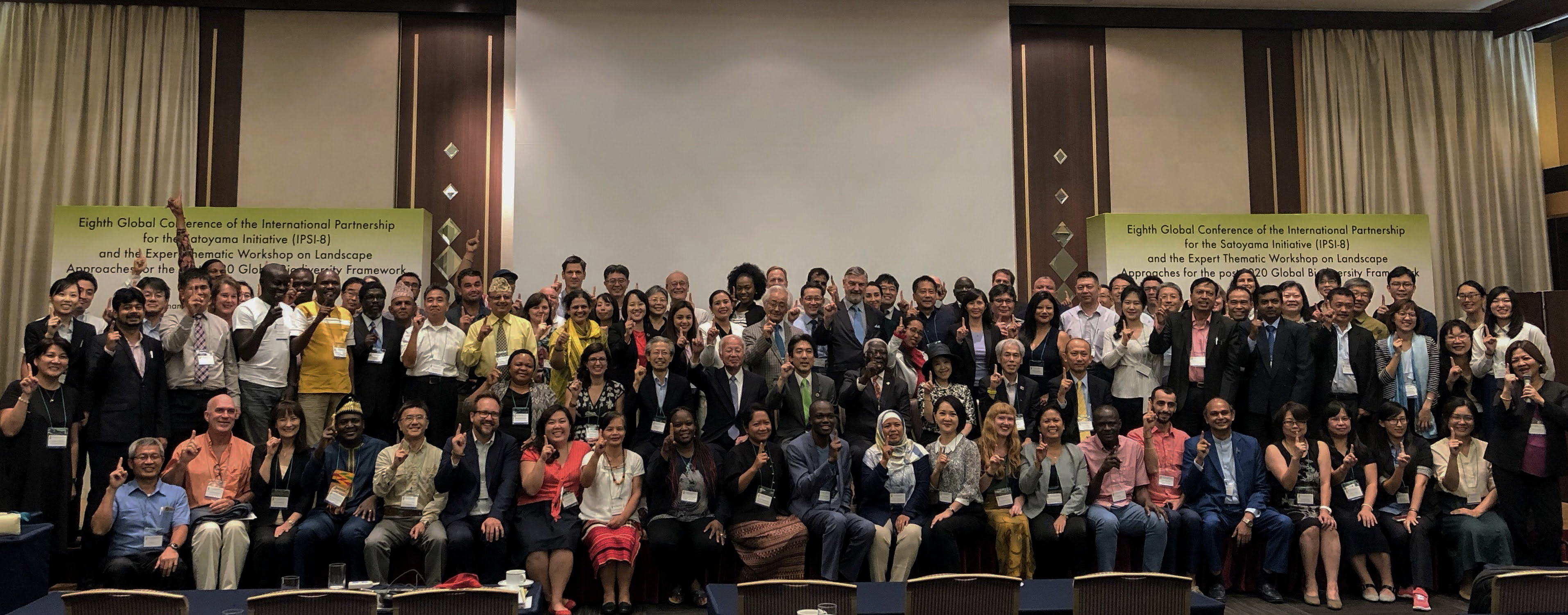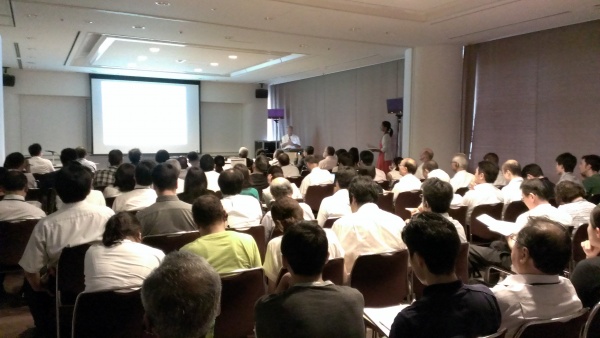The United Nations University Institute for Advanced Studies (UNU-IAS) and the Institute for Global Environmental Strategies (IGES) held a parallel session on the “Benefits and Challenges of Community Engagement for the Sustainable Use of Biodiversity” during the International Forum for Sustainable Asia and the Pacific (ISAP 2014) on 24 July 2014 at the Pacifico Yokohama Conference Center in Yokohama, Japan.
The session featured a keynote address by Professor Kazuhiko Takeuchi providing an overview of the Satoyama Initiative, IPSI, and SEPLS, and a guest presentation by Mr. Toru Fukushima, the owner of the Fukushimaya supermarket, which is making great efforts to promote sustainable use with a cooperative network from production to consumption of his stores’ products. These were followed by a panel session facilitated by Professor Alfred Oteng-Yeboah, National Chairman of the Ghana National Biodiversity Committee, with presentations by three panelists: Dr. Kuang-Chung Lee of National Dong-Hwa University in Taiwan, who described challenges and opportunities for production landscapes and seascapes in his country; Dr. Kaoru Ichikawa of the United Nations University Institute for the Advanced Study of Sustainability, who talked about indicators of resilience in SEPLS; and Dr. Ykhanbai Khijaba of the Environmental and Development Association “JASIL” in Mongolia, who presented preliminary results of using the indicators of resilience in the pastoral landscapes of Mongolia.
The presentations were followed by a showing of a new video filmed in the Urato Islands in northern Japan, showing the recovery from the devastating 2011 tsunami and earthquake applying the concepts of the Satoyama Initiative. The video was made by Kiraksha, Inc., and supported by the “Ink Cartridge Satogaeri Project”, an IPSI Collaborative Activity developed by six ink cartridge manufacturing companies. After the show, the floor was opened for a panel discussion, in which many challenging questions were offered by audience members interested in landscape and seascape approaches and the Satoyama Initiative. The parallel session provided a unique perspective among a wide variety of events related to sustainability held throughout the conference.
More information on this and other ISAP sessions can be found on IGES’ ISAP webpage, and the flier for the session can be found at the link below.




